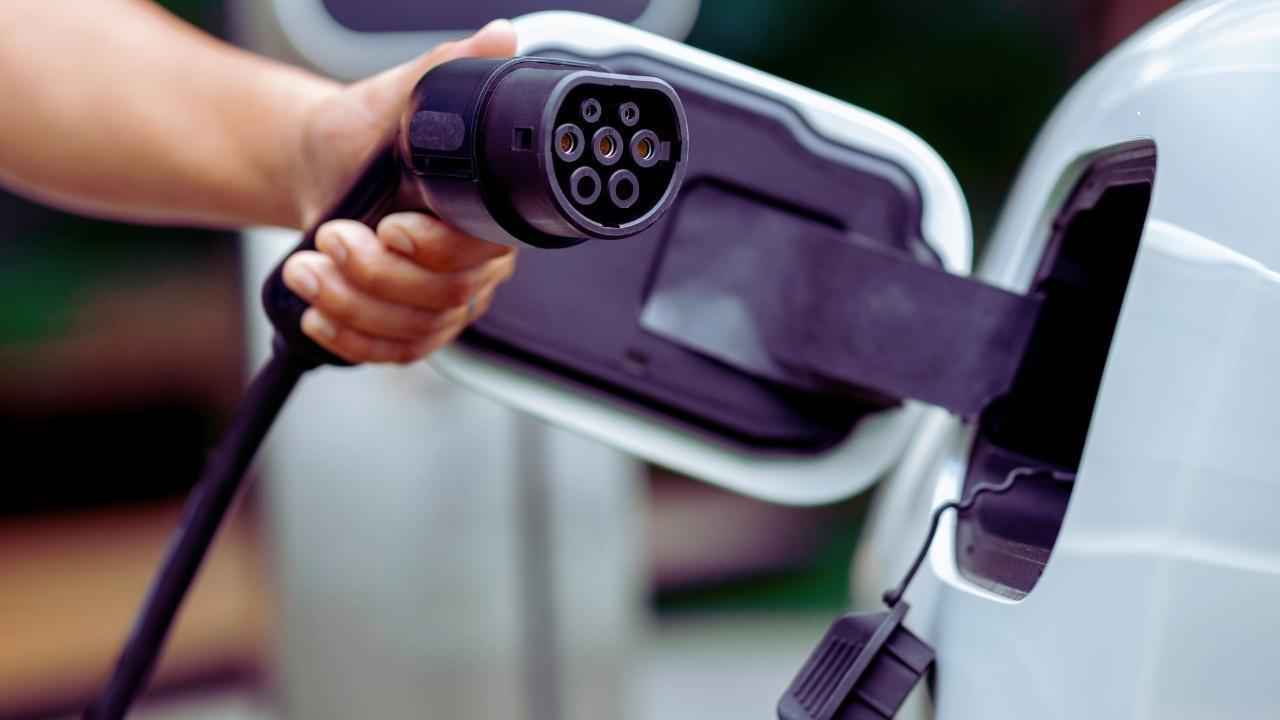You have not yet added any article to your bookmarks!

Join 10k+ people to get notified about new posts, news and tips.
Do not worry we don't spam!

Post by : Anis Farhan
As the world shifts toward electric vehicles and clean energy, nickel—a key component in lithium-ion batteries—is taking center stage. Indonesia, home to the world’s largest nickel reserves, is capitalizing on this moment by accelerating investment in its nickel processing and refining sector. In the first half of 2025 alone, Indonesia approved over US$9 billion in new nickel-related projects, signaling its intention to dominate the midstream of the global EV supply chain.
This strategic pivot not only supports the country’s industrial ambitions but also deepens its economic ties with global tech, energy, and automotive giants.
Since 2020, Indonesia has banned raw nickel ore exports under its downstream industrialization policy. The aim: move up the value chain and turn the country into a global hub for battery and EV manufacturing. As a result, dozens of smelters and refineries have sprung up, particularly in Sulawesi and North Maluku.
The government, through the Ministry of Investment (BKPM) and Indonesia Investment Authority (INA), continues to court foreign investors to develop integrated industrial parks that include:
Nickel smelters
High-pressure acid leach (HPAL) plants for battery-grade nickel
Cathode and anode manufacturing
EV component assembly lines
Key partnerships announced in 2025 include:
LG Energy Solution and Hyundai: A $3.5 billion expansion of their battery complex in Central Java.
CATL (China): New investment in an HPAL facility with an annual capacity of 120,000 tons of nickel sulfate.
Tesla supplier Tsingshan Holding Group: Ongoing expansion of the Morowali Industrial Park.
These facilities will help supply not only Southeast Asia’s growing EV market, but also battery makers in Europe, North America, and beyond.
Indonesia’s nickel boom is already paying dividends. The industry now employs over 100,000 workers, with training programs underway to skill more local youth in metallurgy, engineering, and automation. Export earnings from processed nickel hit a record US$33 billion in 2024 and are expected to grow further this year.
Local economies in Sulawesi are seeing rapid development—from roads and housing to schools and ports—as industrial zones expand. The government aims to increase the nickel sector’s contribution to GDP from 1.5% to over 3% by 2027.
However, the rapid expansion is not without challenges. Environmentalists have raised alarms over deforestation, toxic waste from HPAL processes, and lax enforcement of mining regulations. In response, the government has introduced ESG certification standards, but implementation remains patchy.
Economists also warn against overdependence on nickel. A price collapse or shift to alternative battery chemistries (e.g., LFP batteries) could expose Indonesia to major revenue risks. The country is now working to diversify into other strategic minerals like cobalt and rare earths.
Indonesia’s integrated nickel value chain gives Southeast Asia a unique position in the global energy transition. While Western nations race to localize battery supply chains, few can match Indonesia’s raw material advantage. The region could become a manufacturing alternative to China for EV batteries—if sustainability, transparency, and labor practices are adequately addressed.
Indonesia is also in talks with ASEAN counterparts to standardize battery regulations, align sourcing policies, and develop regional EV corridors.
Indonesia’s nickel industrialization is more than a short-term export boom—it’s a long-term play to anchor itself in the green economy. If successfully managed, it could power Indonesia’s ambitions to move from a commodity exporter to a value-added manufacturing powerhouse.
The key lies in balancing growth with environmental and community safeguards—because the world is watching not just where the nickel comes from, but how it’s produced.
This article is intended for general information purposes only and does not constitute investment, environmental, or legal advice. Readers should consult industry professionals before making decisions related to resource extraction or industrial investment.










Minimarkets May Supply Red and White Village Cooperatives
Indonesia’s trade minister says partnerships with minimarkets and distributors can strengthen villag

South Africa vs West Indies Clash Heats Up T20 World Cup 2026
Unbeaten South Africa and West Indies meet in a high-stakes Super 8 match at Ahmedabad, with semi-fi

Thai AirAsia Targets Growth Through China & Long-Haul Routes
Thai AirAsia aims 6-9% revenue growth in 2026 expanding domestic flights and new international route

India Ends Silent Observer Role Emerges Key Player in West Asia
From passive energy buyer to strategic partner India’s diplomacy in West Asia now commands trust inf

Indian Students Stuck In Iran Amid US-Iran Tensions And Exam Worries
Rising US-Iran tensions leave Indian students stranded, fearing missed exams could delay graduation

India Says J&K Budget Exceeds Pakistan’s IMF Bailout
India slammed Pakistan at UNHRC, stating J&K’s development budget exceeds Pakistan’s IMF bailout and